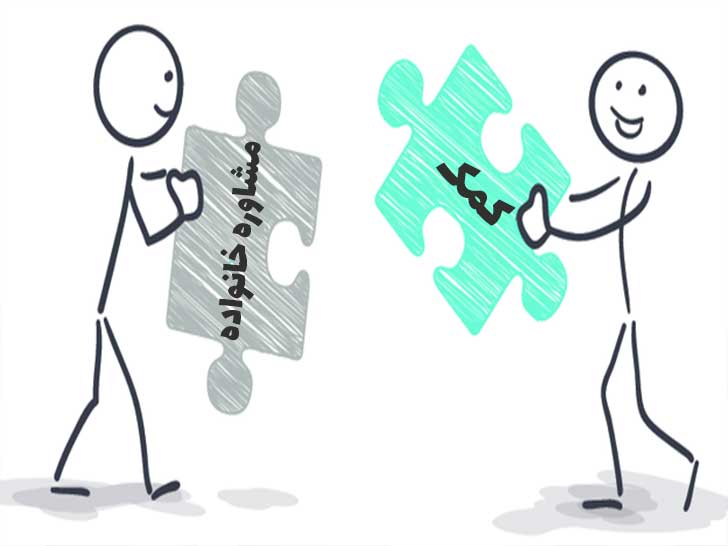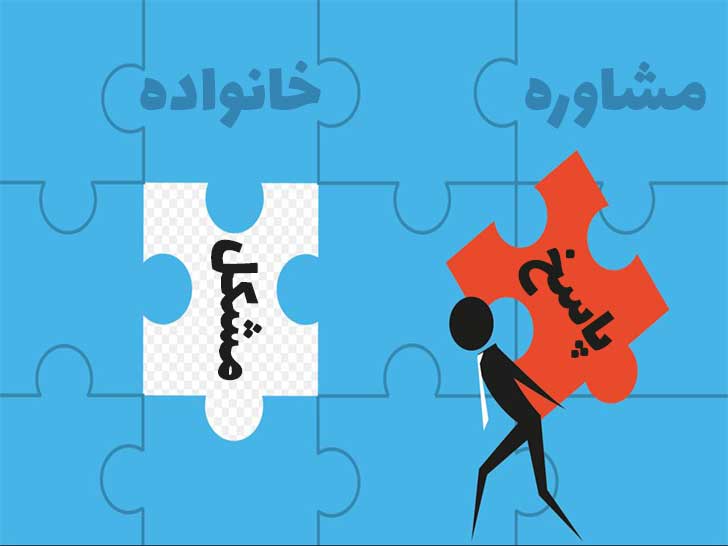اخبار روانشناسی ندای مهر
According to Parasuraman et al. (1991)‚ this questionnaire has been the most widely used to assess the perception of service quality. The SERVQUAL includes the five subscales: Tangibles described as the concepts of “physical facilities‚ equipment‚ and appearance of personnel‚” Reliability described as “ability to performance the promised service dependably‚” Responsiveness described as “willingness to help ustomers and provide prompt service‚” Assurance described as “knowledge and courtesy of employees and their ability to inspire trust and confidence‚” and Empathy‚ which has been defined as “caring‚ individualized attention the firm provides its customers”. the response format for this instrument was a 7-point Likert-type scale‚ with responses ranging from 1 (Strongly Disagree) to 7 (Strongly Agree). Parasuraman‚ A.‚ Berry‚ L. L.‚ & Zeithaml‚ V. A. (1991). Refinement and reassessment of the SERVQUAL Scale. Journal of Retailing‚ 67(4)‚ 420-450.
The scale used a seven-point Likert-type response format with anchors 1 = not applicable and 7 = very applicable on leader's behavior (alpha = 0.95)
Organizational Citizenship Behavior Checklist (OCB-C) 42-Item
Copyright 2009 Suzy Fox and Paul E Spector‚ All rights reserved.
|
How often have you each of the following things on your present job?
|
Never
Once or twice
Once or twice per month Once or twice per week Every day
|
|
1. Helped co-worker with personal matter such as moving‚ childcare‚ car problems‚ etc. |
1 2 3 4 5 |
|
2. Picked up meal for others at work |
1 2 3 4 5 |
|
3. Picked up or dropped off co-worker at airport‚ hotel‚ restaurant‚ etc. |
1 2 3 4 5 |
|
4. Drove‚ escorted‚ or entertained company guests‚ clients‚ or out-of-town employees. |
1 2 3 4 5 |
|
5. Took time to advise‚ coach‚ or mentor a co-worker. |
1 2 3 4 5 |
|
6. Helped co-worker learn new skills or shared job knowledge. |
1 2 3 4 5 |
|
7. Covered a co-worker’s mistake. |
1 2 3 4 5 |
|
8. Helped new employees get oriented to the job. |
1 2 3 4 5 |
|
9. Lent a compassionate ear when someone had a work problem. |
1 2 3 4 5 |
|
10. Bought Girl Scout cookies or other fund raising items from a co-worker (or their child). |
1 2 3 4 5 |
|
11. Used own vehicle‚ supplies or equipment for employer’s business. |
1 2 3 4 5 |
|
12. Lent a compassionate ear when someone had a personal problem. |
1 2 3 4 5 |
|
13. Lent money to a co-worker. |
1 2 3 4 5 |
|
14. Contributed and/or sent cards/flowers for co-worker birthdays/special occasions. |
1 2 3 4 5 |
|
15. Lent car or other personal property to co-worker. |
1 2 3 4 5 |
|
16. Changed vacation schedule‚ work days‚ or shifts to accommodate co-worker’s needs. |
1 2 3 4 5 |
|
17. Offered suggestions to improve how work is done. |
1 2 3 4 5 |
|
18. Offered suggestions for improving the work environment. |
1 2 3 4 5 |
|
19. Finished something for co-worker who had to leave early. |
1 2 3 4 5 |
|
20. Helped a less capable co-worker lift a heavy box or other object. |
1 2 3 4 5 |
|
21. Came in early or stayed late without pay to complete a project or task. |
1 2 3 4 5 |
|
22. Helped a co-worker who had too much to do. |
1 2 3 4 5 |
|
23. Volunteered for extra work assignments. |
1 2 3 4 5 |
|
24. Took phone messages for absent or busy co-worker. |
1 2 3 4 5 |
|
25. Tried to recruit a person to work for your employer |
1 2 3 4 5 |
|
26. Worked weekends or other days off to complete a project or task. |
1 2 3 4 5 |
|
27. Informed manager of co-worker's excellent performance. |
1 2 3 4 5 |
|
28. Brought work home to prepare for next day. |
1 2 3 4 5 |
|
29. Volunteered to attend meetings or work on committees on own time. |
1 2 3 4 5 |
|
30. Developed extracurricular activities for co-workers (sport team‚ etc.) |
1 2 3 4 5 |
|
31. Said good things about your employer in front of others. |
1 2 3 4 5 |
|
32. Gave up meal and other breaks to complete work. |
1 2 3 4 5 |
|
33. Brought candy‚ doughnuts‚ snacks‚ or drinks for co-workers. |
1 2 3 4 5 |
|
34. Organized office celebrations for holidays and co-workers' birthdays‚ retirement‚ etc. |
1 2 3 4 5 |
|
35. Volunteered to work at after-hours or out-of-town events. |
1 2 3 4 5 |
|
36. Volunteered to help a co-worker deal with a difficult customer‚ vendor‚ or co-worker. |
1 2 3 4 5 |
|
37. Gave a written or verbal recommendation for a co-worker. |
1 2 3 4 5 |
|
38. Went out of the way to give co-worker encouragement or express appreciation. |
1 2 3 4 5 |
|
39. Decorated‚ straightened up‚ or otherwise beautified common work space. |
1 2 3 4 5 |
|
40. Spent extra time helping a co-worker prepare/edit/rehearse a presentation or paper. |
1 2 3 4 5 |
|
41. Assisted a co-worker with device or equipment such as computers‚ copy machines‚ etc. |
1 2 3 4 5 |
|
42. Defended a co-worker who was being "put-down" or spoken ill of by other co-workers or supervisor. |
1 2 3 4 5 |
Organizational Citizenship Behavior Checklist (OCB-C)
Suzy Fox‚ Loyola University Chicago
Paul E. Spector‚ University of South Florida
Organizational Citizenship Behavior Checklist (OCB-C) 36-Item
Copyright 2009 Suzy Fox and Paul E Spector‚ All rights reserved
|
How often have you each of the following things on your present job?
|
Never
Once or twice
Once or twice per month
Once or twice per week
Every day
|
|
1. Picked up meal for others at work
|
1 2 3 4 5
|
|
2. Drove‚ escorted‚ or entertained company guests‚ clients‚ or out-of-town employees.
|
1 2 3 4 5
|
|
3. Took time to advise‚ coach‚ or mentor a co-worker.
|
1 2 3 4 5
|
|
4. Helped co-worker learn new skills or shared job knowledge.
|
1 2 3 4 5
|
|
5. Helped new employees get oriented to the job.
|
1 2 3 4 5
|
|
6. Lent a compassionate ear when someone had a work problem.
|
1 2 3 4 5
|
|
7. Used own vehicle‚ supplies or equipment for employer’s business.
|
1 2 3 4 5
|
|
8. Lent a compassionate ear when someone had a personal problem.
|
1 2 3 4 5
|
|
9. Contributed and/or sent cards/flowers for co-worker birthdays/special occasions.
|
1 2 3 4 5
|
|
10. Changed vacation schedule‚ work days‚ or shifts to accommodate co-worker’s needs.
|
1 2 3 4 5
|
|
11. Offered suggestions to improve how work is done.
|
1 2 3 4 5
|
|
12. Offered suggestions for improving the work environment.
|
1 2 3 4 5
|
|
13. Finished something for co-worker who had to leave early.
|
1 2 3 4 5
|
|
14. Helped a less capable co-worker lift a heavy box or other object.
|
1 2 3 4 5
|
|
15. Came in early or stayed late without pay to complete a project or task.
|
1 2 3 4 5
|
|
16. Helped a co-worker who had too much to do.
|
1 2 3 4 5
|
|
17. Volunteered for extra work assignments.
|
1 2 3 4 5
|
|
18. Took phone messages for absent or busy co-worker.
|
1 2 3 4 5
|
|
19. Tried to recruit a person to work for your employer
|
1 2 3 4 5
|
|
20. Worked weekends or other days off to complete a project or task.
|
1 2 3 4 5
|
|
21. Informed manager of co-worker's excellent performance.
|
1 2 3 4 5
|
|
22. Brought work home to prepare for next day.
|
1 2 3 4 5
|
|
23. Volunteered to attend meetings or work on committees on own time.
|
1 2 3 4 5
|
|
24. Developed extracurricular activities for co-workers (e.g.‚ sport team)
|
1 2 3 4 5
|
|
25. Said good things about your employer in front of others.
|
1 2 3 4 5
|
|
26. Gave up meal and other breaks to complete work.
|
1 2 3 4 5
|
|
27. Brought candy‚ doughnuts‚ snacks‚ or drinks for co-workers.
|
1 2 3 4 5
|
|
28. Organized office celebrations for holidays and co-workers' birthdays‚ retirement‚ etc.
|
1 2 3 4 5
|
|
29. Volunteered to work at after-hours or out-of-town events.
|
1 2 3 4 5
|
|
30. Volunteered to help a co-worker deal with a difficult customer‚ vendor‚ or co-worker.
|
1 2 3 4 5
|
|
31. Gave a written or verbal recommendation for a co-worker.
|
1 2 3 4 5
|
|
32. Went out of the way to give co-worker encouragement or express appreciation.
|
1 2 3 4 5
|
|
33. Decorated‚ straightened up‚ or otherwise beautified common work space.
|
1 2 3 4 5
|
|
34. Spent extra time helping a co-worker prepare/edit/rehearse a presentation or paper.
|
1 2 3 4 5
|
|
35. Assisted a co-worker with device or equipment such as computers‚ copy machines‚ etc.
|
1 2 3 4 5
|
|
36. Defended a co-worker who was being "put-down" or spoken ill of by other co-workers or supervisor.
|
1 2 3 4 5
|
|
Affect
|
I like my supervisor very much as a person.
My supervisor is the kind of person one would like to have as a friend.
My supervisor is a lot of fun to work with.
|
|
Loyalty
|
My supervisor defends my work actions to a superior‚ even without complete knowledge of the issue in question.
My supcrvi.sor would come to my defense if I were "attacked" by others.
My supervisor would defend me to others in the organization if I made an honest mistake.
|
|
Contribution
|
I do work for my supervisor that goes beyond what is specified in my job description.
I am willing to apply extra efforts‚ beyond those normally required‚ to further the interests of my work group.
|
|
Professional Respect
|
I am impressed with my supervisor's knowledge of his/her job.
I respect my supervisor's knowledge of and competence on the job.
I admire my supervisor's professional skills.
|

-

برای مراجعه به مشاوره خانواده آیا باید مریض و یا آشفته باشم؟
کارشناس ندای مهر (مشاوره خانواده) -

رک گویی و بی پرده حرف زدن در خانواده خوب است یا بد؟
کارشناس ندای مهر (مشاوره خانواده) -

مشاوره خانواده چگونه می تواند به خانواده من کمک کند؟
کارشناس ندای مهر (مشاوره خانواده) -

چه مشکلاتی را مشاور خانواده می تواند حل و فصل کند؟
کارشناس ندای مهر (مشاوره خانواده) -

تاثیرات منفی اشتغال زنان بر روابط خانواده
کارشناس ندای مهر (مشاوره خانواده)






